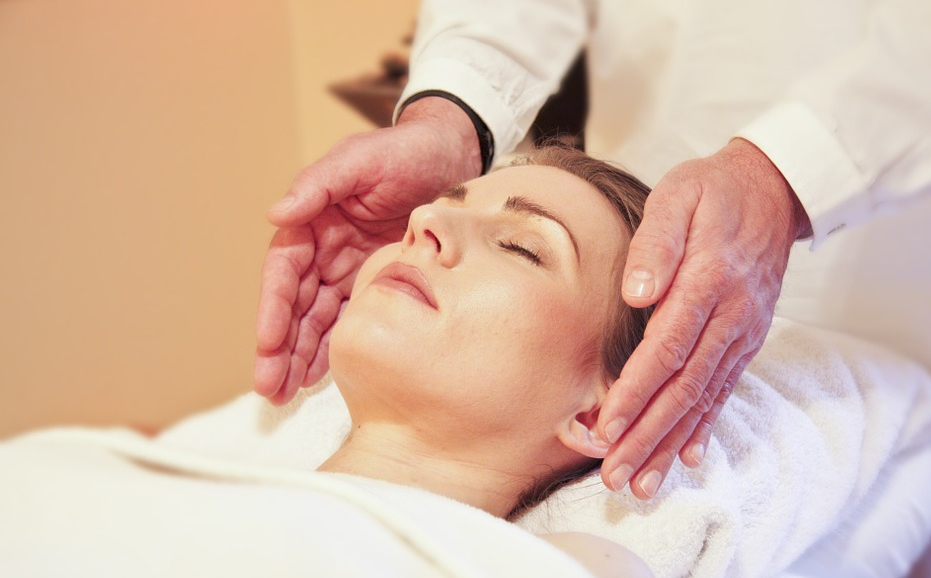Multiple studies find that yoga can reduce the symptoms of depression
08/12/2017 / By Frances Bloomfield

Yoga is a practice that has long been associated with a relaxed body and mind. New studies have suggested that yoga may help relieve the symptoms of depressions as well, especially when utilized as a complement to traditional therapy. These studies were presented at the 125th Annual Convention of the American Psychological Association (APA) held in Washington, D.C., according to ScienceDaily.com.
One of the studies, led by Lindsey Hopkins from the San Francisco Veterans Affairs Medical Center in California, focused on the effects of hatha yoga on male veterans. Hatha yoga is a branch of yoga that places emphasis on physical exercises, breathing exercises, and meditation, and is considered to be ideal for beginners. The 23 participants attended twice-weekly yoga classes for a period of eight weeks, then were tasked with ranking their level of enjoyment on a scale of one to 10.
The average enjoyment rating was 9.4, and veterans who had elevated depression scores prior to the program experienced a significant reduction in depression after the eight weeks had passed. All of the participants stated that they would recommend hatha yoga to other veterans.
The researchers behind a different study looked into the efficacy of Bikram yoga, a widely practiced system of yoga based off hatha yoga. In this study, conducted by Sarah Shallit from Alliant International University, 52 women between the ages of 25 to 45 were split into two groups. The first group was made to participate in twice-weekly Bikram yoga classes for eight weeks, while the second group or control group was told they were placed on the waiting list.
The depression levels of each participant were tested during weeks one, three, six, and nine of the study. Compared to the control group, the Bikram yoga group experienced significantly reduced depression symptoms.
In addition to its positive impact on depression, another study has suggested that yoga may be just as beneficial for people with chronic or treatment-resistant depression, stress, and anxiety. Nina Vollbehr of the Center for Integrative Psychiatry in the Netherlands enrolled 12 participants in nine weekly yoga sessions that lasted two-and-a-half hours each. The participants, who had been experiencing depression for an average of 11 years, had their levels of depression, anxiety, stress, worry, and rumination measured prior to the yoga sessions, after the nine weeks had passed, and four months later.
The researchers discovered that the participants’ depression, anxiety, and stress levels decreased over the course of the yoga, and remained that way well after the sessions had concluded. Although rumination and worry levels showed no changes during the program, the follow-up showed a reduction in both of these areas. (Related: Yoga improves mood, reduces anxiety and depression)
Vollbehr co-authored another study that involved 74 university students with mild depression. The students were taught either yoga or relaxation by an instructor during a 30-minute session, and were tasked with performing the same exercise for eight days with the aid of a 15-minute instructional video.
Based on results taken directly after the eight-day period, both yoga and relaxation were shown to have positive effects on the participants’ depression. At the two-month follow-up, however, the group that had received yoga instruction scored much lower on depression, stress, and anxiety than the group that had been taught relaxation.
Speaking about the findings of the various studies, Vollbehr commented: “These studies suggest that yoga-based interventions have promise for depressed mood and that they are feasible for patients with chronic, treatment-resistant depression.”
The researchers acknowledged that yoga may not be the ultimate to depression, but that it can serve as a possible treatment option for individuals responding poorly to modern therapies.
“At this time, we can only recommend yoga as a complementary approach, likely most effective in conjunction with standard approaches delivered by a licensed therapist,” said Hopkins. “Clearly, yoga is not a cure-all. However, based on empirical evidence, there seems to be a lot of potential.”
Go to Psychiatry.news for more stories like this one.
Sources include:
Tagged Under: Anxiety, bikram yoga, depression, hatha yoga, holistic medicine, mental health, natural health, stress, Yoga




















